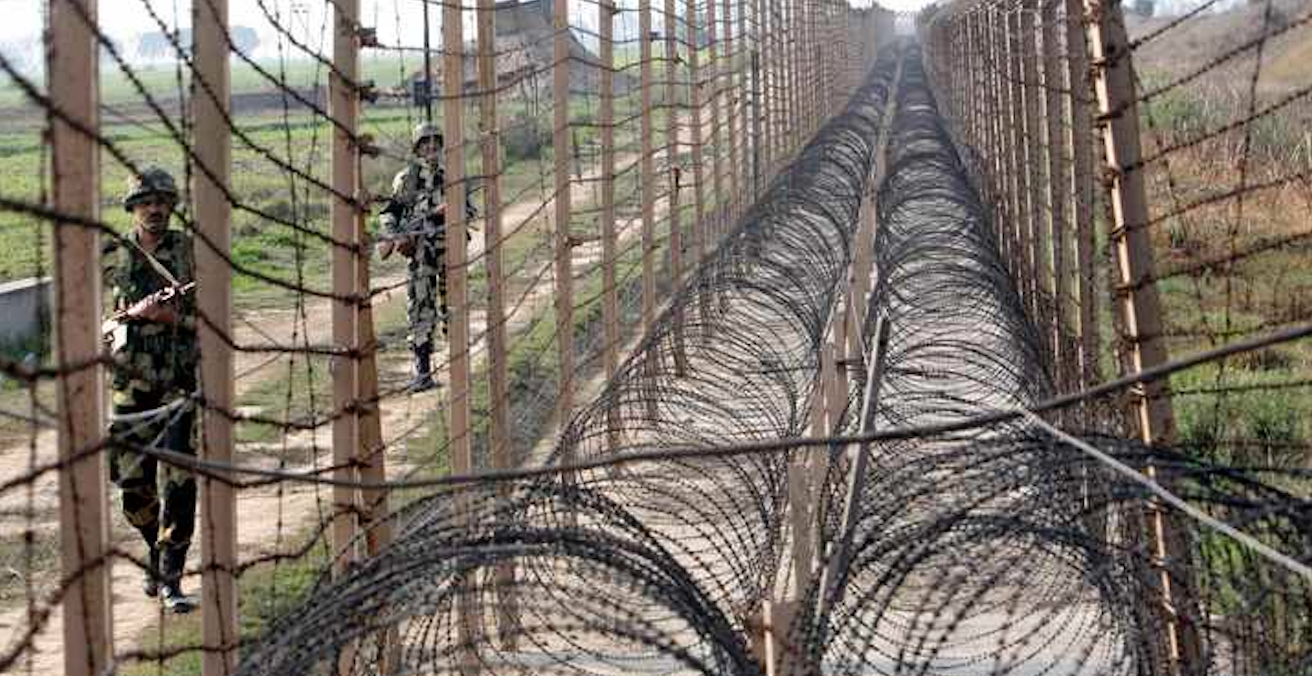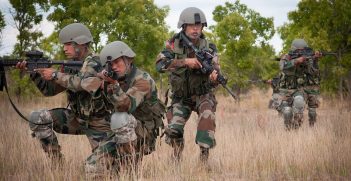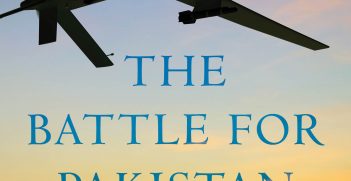Pulwama Terror Attack: India’s Response Escalates

Following the Pulwama terror attack in Kashmir, Indian Prime Minister Modi has been under pressure to act. With an election approaching in April, diplomatic moves against Pakistan to curb its support for terrorism have now proven to be just his first move in India’s response.
On 14 February, Aadil Ahmad Dar rammed a car packed full of explosives into a convoy of the Indian Central Reserve Police Force (CRPF), killing 40 people in the Pulwama district of Jammu and Kashmir. The attack is the deadliest since the conflict began in the region in 1989. The Pakistan-based terrorist organisation, Jaish-e-Mohammed (JeM) has claimed responsibility. The attack has received international condemnation and severely strained already fraught relations between India and Pakistan. It has also once again led to increased scrutiny of Pakistan over its sheltering of terrorists. The timing of the terror attack has ramifications for Indian domestic politics and should be viewed within the context of regional geopolitics. With India having now made an incursion into Pakistan’s airspace in an attempted attack upon a suspected JeM training camp, there is a threat of Pakistani reprisals and further escalation of the conflict.
China-Pakistan bonhomie: balancing India through terrorism
Aadil is reported to have joined JeM to carry out the terror attack after a brief association with the Kashmir-based Ansar Ghazwat-ul-Hind. Pakistan’s government has denied any role in the attack. But Pakistan has a track record of hosting designated terrorists and sheltering and aiding terrorist outfits. Pakistan-based terror outfits such as Lashkar-e-Taeba and JeM have aimed at radicalising disgruntled Muslim youths in the name of Jihad. And in May-June 2018, JeM was involved in masterminding a foiled terror plot in India. Arguably, Pakistan has been using terrorism as an instrument of state policy in its quest for parity with India.
After Pulwama, China is being criticised for its attempts to veto the United Nations Security Council (UNSC) resolution condemning the Palwama attack from making reference to JeM and its leader Azhar Masood. The relationship between China and Pakistan has been elevated to one of greater economic interdependence through China’s Belt and Road Initiative and China’s defence of Pakistan’s terror networks has increased. The pair’s “all-weather friendship” is primarily aimed at harming India. This animosity is visible in China and Pakistan’s civil nuclear cooperation and China’s support for Pakistan’s military through the supply of weapons and missile technology.
Great power geopolitics
Of the five permanent members of the UNSC, all but China have supported India’s move to name JeM and Azhar Masood on the United Nations’ global terror list. China’s support to Pakistan in harbouring terrorist organisations can be viewed as a strategy to constrain India. This has been amplified by the US-China strategic rivalry and India’s robust and deepening strategic defence partnership with the United States. In an age of economic interdependence and nuclear deterrence, sponsoring terrorism to constrain the rise of India could be considered a matter of “state policy” for Pakistan and one of “soft balancing” for China. Since the 1962 Indo-China War, the two countries have been in a conflicting and competitive relationship, often being drawn into disputes over rival interests along their shared border. China has overtaken India but is concerned about its rising economic and military profile and its close ties with the United States. As such, China has been using Pakistan’s terror networks to balance India.
The United States has condemned the Pulwama terror attack, denounced Pakistan and said the attack only strengthens its resolve to bolster counterterrorism cooperation and intelligence coordination with India. The US State Department issued a statement supporting India’s right to self-defence against cross-border terrorism and called on Pakistan and China to uphold their responsibilities pursuant to UNSC resolutions to deny safe haven and support for terrorists. The US support for India has been expressed by members of Congress, including House Foreign Affairs Committee Chairman Eliot Engel and Congresswoman and Presidential Candidate Tulsi Gabbard.
The State Department’s comment about denying safe haven and support to terrorists was meant for all countries but was clearly directed at Pakistan and China. The US-India strategic partnership has been highly visible in the security realm. Both have been working closely on counter-terrorism cooperation since the relationship was established in 2000 and in the wake of 9/11 and the Mumbai attacks in 2008, cooperation has increased considerably.
Pakistan is a fragile state with governance issues and a poor human rights record. It rates poorly in corruption indices and although the economy saw improvement under Nawaz Sharif’s government and there are hopes for development and better governance under Prime Minister Imran Khan, Islamic extremism in Pakistan continues to be supported by powerful elements within the Pakistani state. It is also faced with social and economic challenges such as poor gender equality and high rates of illiteracy and poverty, which only serves to exacerbate the possibility of breeding further terrorist activity.
Modi and India’s Pakistan policy
In India’s 2014 general election, Prime Minister Narendra Modi came to power on a development agenda and with the expectation he would be tough on Pakistan. However, contrary to expectations, Modi pursued a policy of engagement with Pakistan. This was visible through a number of initiatives. He invited heads of government from the South Asian Association for Regional Cooperation to his swearing-in ceremony and for foreign secretary and national security advisor level talks, approved a roadmap for talks in Russia, met with Nawaz Sharif in Paris and also attended his daughter’s wedding.
However, over the past two years in the wake of terror attacks on the Pathankot air base and then the Uri terror attack which killed approximately 20 Indian security personnel, Modi has taken a hard-line approach towards Pakistan. This is evident in the surgical strikes on terror outfits in Pakistan Occupied Kashmir and through isolating Pakistan internationally by exposing Islamabad’s support for terrorist organisations. There has also been minimal bilateral engagement between India and Pakistan. Although it has yet to have any success doing so, India has tried to reach out to Muslim nations such as Saudi Arabia to discredit Pakistan in its support for terrorists.
India has been starting to develop strategic ties with Iran and Afghanistan and both have strongly condemned the Pulwama terror attack. Afghanistan’s recent development of export routes to India through Chabbar port in Iran provides evidence of the trio’s strengthening ties.
Escalating tensions
Reacting to public pressure to provide a strong response to the Pulwama attack, Prime Minister Modi chaired a series of high-level meetings and revoked the Most Favoured Nation (MFN) Status bestowed upon Pakistan under World Trade Organisation rules. The MFN status had been in place since 1996 and its removal will lead to much higher import duties on Pakistani exports to India. India has also taken the decision to restrict the flow of water from Indian rivers to Pakistan under the Indus Waters Treaty.
Additionally, India is taking diplomatic steps to isolate Pakistan. The Ministry of External Affairs said in a statement: “[it] will initiate all possible diplomatic steps which are to be taken to ensure the complete isolation from the international community of Pakistan of which incontrovertible evidence is available of having a direct hand in this act.”
With a general election due in April 2019, Modi’s options have clearly been limited and time constrained. On the diplomatic front, he has been making headway. Following intense pressure to expose Pakistan’s support for terror organisations, France (supported by the United States, the United Kingdom and Russia in the UNSC) is set to offer its full support in pushing for a resolution in the UNSC to list JeM, Azhar Masood and a number of terrorists involved in the Pathankot Air Base attack on the United Nation’s international terrorist list.
Militarily, Modi has now made his first move. He gave a free hand to India’s security forces to choose the time, place and structure to provide a response to the Pulwama attack, and they have now launched air strikes into Pakistan-controlled Balakot amidst suspected threats of further attacks from JeM.
As the dispute between India and Pakistan enters a new phase, the hope is the air strike does not escalate into further conflict between the two nuclear-armed states.
Dr Ashok Sharma is visiting fellow at UNSW Canberra at the Australian Defence Force Academy, adjunct associate professor at the Institute for Governance and Policy Analysis at the University of Canberra and deputy chair of the New Zealand Institute of International Affairs, Auckland.
This Article is published under a Creative Commons License and may be republished with attribution.





